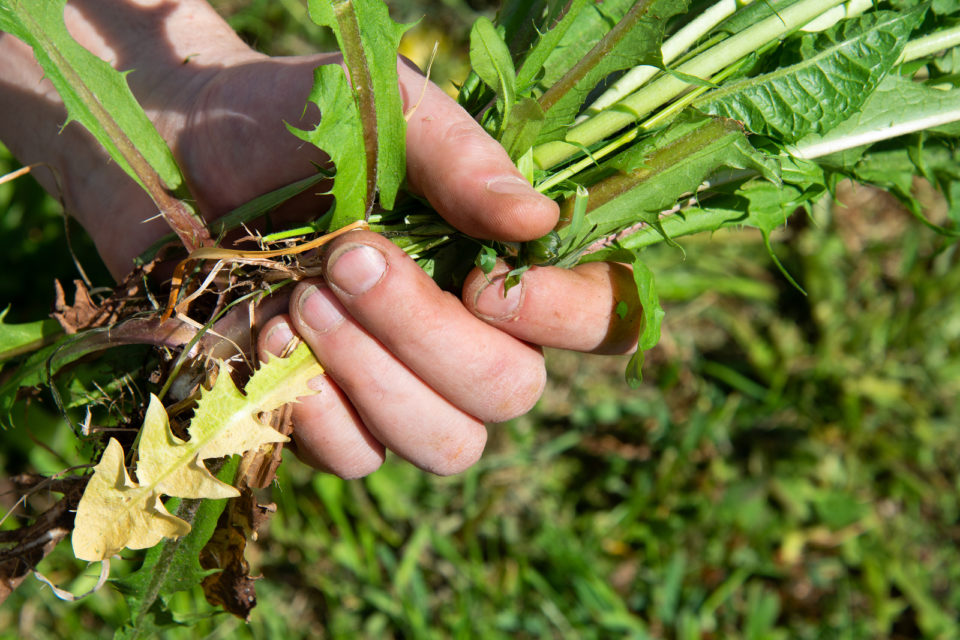OCEANSIDE — Earlier this month, City Council approved a $305,000 base contract for a pest management program with additional costs to be discussed at a later date during the budget process.
City Council adopted an Integrated Pest Management Program (IPM) and approved a base contract in the amount of $305,000 with Executive Landscape of Fallbrook at its March 11 meeting.
According to the Public Works Department, the city’s largest pest issue is the presence of weeds. Under the approved IPM, cultural and mechanical pest control measures will be the primary means to control weeds within the city’s parks. To stop the use of chemical pesticides, the plan will include the increased use of mulch, irrigation management and a weed crew.
Parks and beach maintenance include 45 parks and city facilities, including the Civic Center and city operations center. It also includes mowing, trimming, cleaning of courts and amenities and trash and debris removal.
Rather than choose one of three management option strategies as recommended by staff, council decided to move discussion of the options to later during the city’s budgeting process due to cost concerns.
Option 1 would have approved an annual $568,230 Public Works Agreement with Executive Landscape, the most expensive of the three options.
It would include a year-round increased maintenance component of a full-time, four-person weed crew. Additionally, it would eliminate the use of chemical pesticides within turf areas and planter areas and make for healthier turf and planter area conditions.
Option 2 would cost $442,842 annually and include six-month provision for increased maintenance during those months when weed growth is not as prevalent with a four-person crew. It could also require the need to use chemical pesticides within turf areas and planter areas to control weeds and could result in intermittent presence of weeds within turf and planter areas.
Option 3 would cost $380,148 annually and include a three-month provision for increased maintenance with a four-person crew. This option could require the need to use chemical pesticides within turf areas and planter areas to control weeds but could still result in an increased presence of weeds within turf and planter areas.
Each year, there would be an increase of $62,694 above the base bid to accommodate a full-time, four-person weed crew. Each agreement is a two-year Public Works Agreement with three one-year extensions.
Though ultimately, he would like to choose Option 1, Councilman Chris Rodriguez did not support any of the options because of cost reasons.
“I would love us to be able to afford an option like this, but I just don’t think feasibly we’re in a position as a city to spend taxpayer dollars and take from our infrastructure fund when we have roads that need to get repaired and parks to be repaired,” Rodriguez said.
Rodriguez also noted that the city would be spending more money because maintenance is pulling weeds by hand in Option 1 rather than using pesticides in the options, which could get costly. Deputy Mayor Jack Feller was also weary of this idea.
“We’re spending this extra $250,000 so that we can pull weeds,” Feller said.
Councilman Ryan Keim was also concerned about the cost and the increased number of weeds.
“$500,000 for two years is a lot to take on for us right now,” Keim said. “We’d have to tolerate more weeds if we tolerate any of these options.”
Keim also noted the city’s tourism could be hurt this year with the coronavirus pandemic, thus affecting the revenue the city receives from transient occupancy taxes.
Additionally, the city recently had bonds recalled which according to Mayor Peter Weiss could result in a $1 million loss of revenue for the city.
“My concern is that we’re prioritizing this over any other pending budget priority,” Weiss said. “We’re essentially trading two police officers or two resource centers for a pest management strategy.”
It was Weiss who suggested moving discussion of the options to the budget process to better determine how to prioritize them.
Esther Sanchez was the only council member who supported passing Option 1 that night. For her, the IPM is a “high priority.”
“These are chemicals that are making our kids and our families sick,” Sanchez said. “These are chemicals that cause cancer and I don’t want to wait for the state to tell us what we already know.”
Several members of the public also spoke in favor of passing Option 1.



